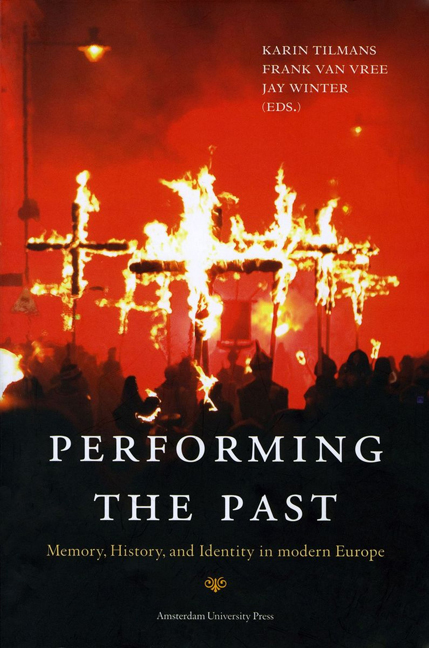Chapter 5 - Co-memorations. Performing the Past
Published online by Cambridge University Press: 15 January 2021
Summary
History is the big myth we live, and in our living, constantly remake.
Robert Penn WarrenThis exploration starts from the crossroads where two popular recent approaches to cultural history meet: the study of memory and the study of performance. It may be useful to distinguish at the start of this essay on the performance of memory between different kinds or genres of performance. At one extreme, we find historical plays from Shakespeare to Strindberg and beyond or the historical operas of Verdi, say, or Glinka; in other words, performances that are tightly organized, fully scripted, and carefully rehearsed. At the other extreme, there are loosely organized, unscripted, and unrehearsed attempts to re-enact past events in the sense of following past models.
In the Russian Revolution, for example, some participants, notably Trotsky, saw themselves as re-enacting the French Revolution. In 1789, some participants made comparisons between what was happening and the English Revolution of the 1640s. In 1688 in Ireland, an army officer, Captain Thomas Ash, wrote in his diary that there were rumours that the Catholics would rise and ‘act over the tragedy of one thousand six hundred and forty one’. In the 1640s, some Englishmen saw the events of the time as a kind of replay of the French religious wars of the previous century.
In between these extremes, come the regular re-enactments of historic battles such as Naseby, Gettysburg, and D-Day by groups of enthusiasts dressed in the appropriate costumes. In the middle we also find the subject of this chapter, commemorations, in other words processions, pageants, or parades (cavalcades, motorcades) that mark the anniversary and evoke the memory of a historic event.
Performances of this kind have an important role to play in the construction of what was once called ‘folk memory’ and is now described either as ‘social’ or as ‘cultural’ memory. Following Aleida Assmann, I shall distinguish the two terms, associating them with two traditions of scholarship, one of them German and one French.
- Type
- Chapter
- Information
- Performing the PastMemory, History, and Identity in Modern Europe, pp. 105 - 118Publisher: Amsterdam University PressPrint publication year: 2012
- 1
- Cited by

